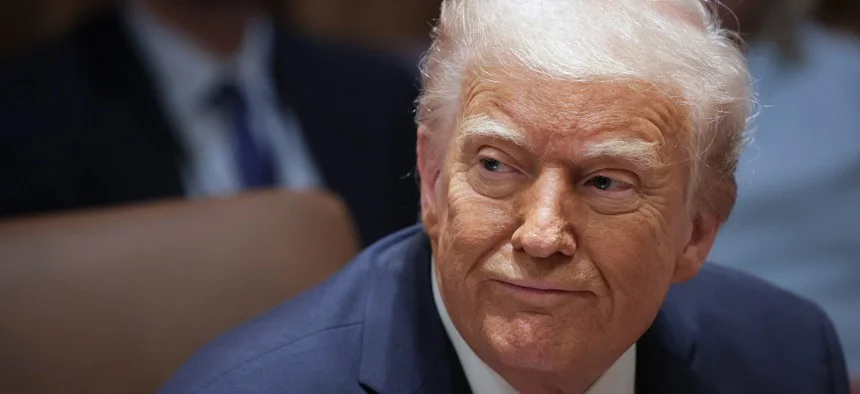
Trump’s Executive Order Limits Collective Bargaining for Federal Workers
President Donald Trump has issued an executive order that significantly limits the collective bargaining rights of federal employees, citing national security concerns. The order, which was announced on March 28, 2025, excludes most federal workers from participating in labor-management relations programs, impacting a wide range of agencies.
The move has sparked intense debate and criticism from union leaders and Democratic lawmakers, who argue that it undermines the rights of federal workers and could lead to decreased morale and efficiency within federal agencies. Critics also question the validity of the national security justification, suggesting it is a pretext for weakening union power.
The White House contends that the order is necessary to streamline government operations and protect sensitive information. However, this decision comes at a time when the rights of workers are a hotly debated topic across the United States, with various states and industries facing their own labor disputes and union negotiations.
The full impact of Trump's executive order on federal employees and the broader labor movement remains to be seen, but it is clear that this decision will have significant repercussions for the future of labor relations in the federal government.
Related issues news
What are federal unions?
Unions representing federal workers can only bargain over conditions of employment, with wages, benefits, and classifications set by law and Congress. Bargaining is governed by the 1978 Civil Service Reform Act. Federal workers are also barred from conducting strikes.
What are exclusions from federal labor management relations programs?
The action removes collective bargaining rights for workers at more than 30 federal agencies that involve the issues of national defense, border security, foreign relations, energy security, pandemic preparedness, cybersecurity, economic defense, and public safety.
What are collective bargaining rights?
Your union and employer must bargain in good faith about wages, hours, and other terms and conditions of employment until they agree on a labor contract or reach a stand-off or “impasse.” If negotiations reach an impasse, an employer can impose terms and conditions so long as it offered them to the union before impasse ...